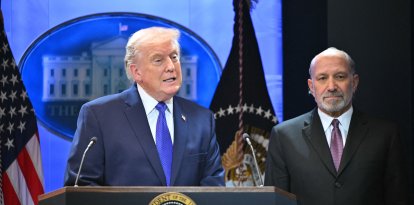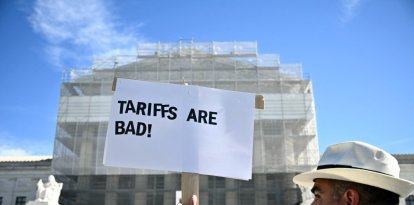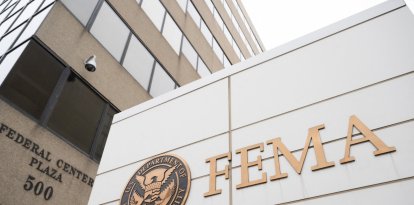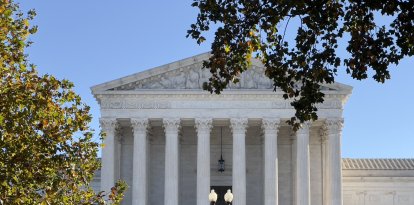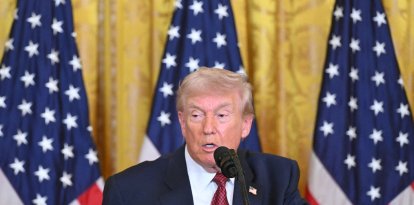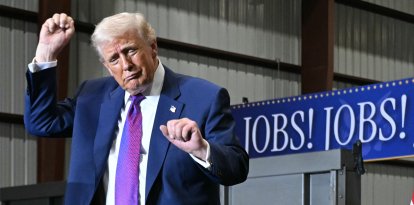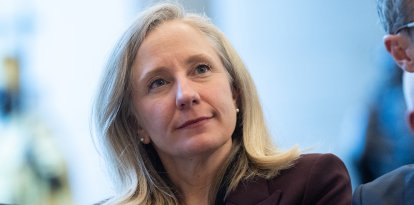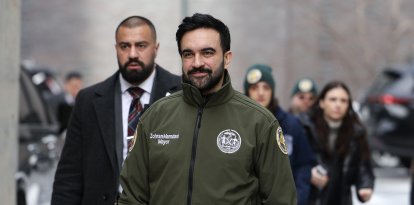Biden administration spent $267 million in taxpayer money on 'researching disinformation,' per OpenTheBooks
A recent NGO investigation explains the numbers behind the academic studies that served the government to "lay the groundwork" for its policies against alleged disinformation since 2021.

File photo of protest against censorship.
A recent study by OpenTheBooks detailed the multimillion-dollar cost of public subsidies to study so-called “disinformation”: at least $267 million since 2021. Specifically, it explains, the aim was to study or monitor how information was disseminated and how to convince the public to listen to official voices. Much of the money, some $127 million, was earmarked for projects linked to COVID-19.
Although grants for that purpose began before Biden took office, "there was an explosion of cash during the years-long Covid malaise." The increase between 2020 and 2021 is remarkable: from $2.2 million to $126 million.
Since then, OpenTheBooks clarifies, this spending has been declining year by year, reaching about $18.3 million in 2024. However, this number is well above the previous four years, when it did not exceed $3 million per year.
Another notable change from 2020 was that contracts increasingly "concerned with monitoring or eliminating supposed misinformation at its source," such as the $299,964 awarded to Gryphon Scientific for "systematic understanding and elimination of misinformation online."
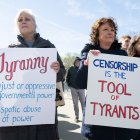
Politics
Congressional investigation accuses State Department of funding 'Censorship Industrial Complex'
Santiago Ospital
Major recipients
The Department of Health and Human Services (HHS) was the agency that spent the most on these studies, allocating more than $185 million to them. It was followed by the National Science Foundation ($65 million), the State Department ($12 million) and the Department of Defense ($2 million).
Other recipients are, in addition to live monitoring companies, NGOs and universities. Of the latter, the most benefited was the Municipal University of New York with more than $3 million. Completing the top five are Wake Forest University ($2.8 million), the University of Michigan ($2.7 million), the University of Pennsylvania ($2.3 million) and the University of Texas at Houston ($2.1 million).
From words to action
"Although much of this research is academic, it is often intended to lay the groundwork for public interventions," the government watchdog group explains. The investigation thus adds to the series of revelations about the ambition and action of the Biden administration to control public discourse, initiated with the Twitter Files.
Mark Zuckerberg, CEO of Meta, confessed to caving in to pressure from the administration to censor posts about COVID-19 and Hunter Biden's laptop. Although the Supreme Court ruled earlier this year that these activities did not violate the First Amendment, there are growing voices critical of these practices, led by Republicans on the House Judiciary Committee.
That committee has released a series of reports that, using internal company emails collected through subpoenas, reveal how the lobbying apparatus worked. They detail a Democratic coercion campaign that, after months of pressure, reportedly resulted in changes to content moderation policies. In effect, this involved censoring books, videos and posts.
The bans did not occur only on Twitter and Facebook, but also on Google and Amazon. The latter, for example, created at the request of the administration a list of books to not promote (literally called “Do Not Promote”) and included more than 40 books linked to the subject of vaccines without even notifying their authors. "It's an outrageous violation of our first amendment rights," said a publisher of two books on the blacklist to VOZ.
$200,000 to 'study' Trump
OpenTheBooks highlights one particularly "brazen" case: $199,516 for research that "targeted former president Donald Trump."
The recipient of the funds, George Washington University, included Trump's first term in office on a list of "populist" governments that prevented society from uniting in "solidarity" during the pandemic, the NGO explained.
In addition, the researchers clarified who should have the commanding voice during health crises: "Public officials need to have the ‘main say’ on health guidance next time."


















